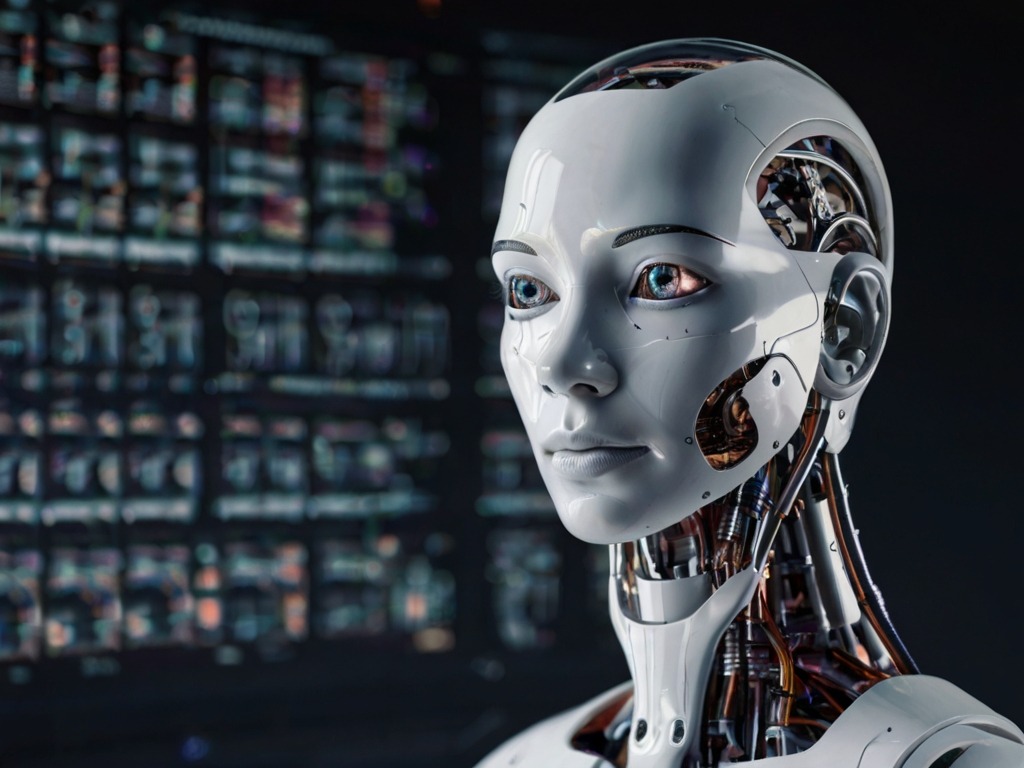Artificial Intelligence (AI) stands as a technological juggernaut, but its influence goes far beyond mere innovation. This article embarks on a comprehensive exploration of AI’s profound impact on society, dissecting its role in shaping the present and future of humanity. From healthcare revolutions to educational paradigm shifts, AI is an omnipresent force reshaping traditional norms.
In understanding AI’s social impact, we unravel the intricate threads that weave through various sectors. The evolution of AI has ushered in an era where technology intersects with societal well-being, creating opportunities for positive change. As we navigate this complex landscape, it’s essential to decipher the ways AI contributes to solving critical challenges and fostering inclusivity.
AI in Humanitarian Efforts
Artificial Intelligence (AI) emerges as a transformative force, reshaping disaster response and crisis management. AI’s impact is evident in enhancing the efficiency of aid organizations. Predictive analytics and real-time data processing empower AI to anticipate and respond swiftly to natural disasters, predicting the trajectory of hurricanes or earthquakes. This enables preemptive measures to minimize the impact on communities.
AI facilitates optimized resource allocation during emergencies, assessing the immediate needs of affected areas to ensure supplies, medical assistance, and personnel are deployed efficiently. This speeds up response times and ensures targeted resource utilization.
In crises, communication is crucial. AI-powered chatbots and natural language processing enable aid organizations to provide real-time information and coordinate rescue efforts. These technologies bridge communication gaps, fostering effective collaboration in times of crisis.

Tackling Healthcare Disparities
AI-driven technologies play a transformative role in reducing healthcare inequalities by enhancing accessibility, diagnostics, and personalized treatment.
AI facilitates improved access to healthcare services, especially in underserved communities. Telemedicine, enabled by AI, brings medical expertise to remote areas, overcoming geographical barriers and ensuring that individuals receive timely and quality care. This fosters a more inclusive healthcare system, reaching those who might otherwise face challenges in accessing medical facilities.
Moreover, AI enhances diagnostic accuracy, contributing to more precise and early detection of diseases. Machine learning algorithms analyze vast datasets, identifying patterns that may elude human observation. This aids in diagnosing conditions promptly, leading to timely interventions and improved health outcomes.
Personalized treatment plans are another dimension where AI addresses disparities. By analyzing individual patient data, AI tailors treatment strategies, considering genetic factors and lifestyle variations. This approach ensures that healthcare interventions are not only more effective but also aligned with the specific needs of diverse patient populations. As AI continues to evolve, its role in healthcare becomes pivotal in dismantling disparities, creating a future where quality healthcare is accessible to all.

Enhancing Education Accessibility
AI’s adaptive learning systems cater to individual student needs, ensuring personalized educational journeys. These systems analyze student performance data, identifying strengths and weaknesses to deliver targeted support. This approach fosters a dynamic learning environment where each student can progress at their own pace, addressing diverse learning styles and abilities.
Furthermore, AI facilitates inclusive education by providing support for students with diverse needs. Speech-to-text and text-to-speech technologies aid those with reading difficulties, while adaptive interfaces and interactive content accommodate various learning preferences. These innovations create a more inclusive educational landscape, ensuring that learners with different abilities can actively participate and thrive.
“Some people call this artificial intelligence, but the reality is this technology will enhance us. So instead of artificial intelligence, I think we’ll augment our intelligence.”
Ginni Rometty Tweet
Fostering Inclusive Financial Systems
AI facilitates inclusive lending practices by optimizing credit assessments. Machine learning algorithms analyze a multitude of data points, allowing for a more comprehensive evaluation of an individual’s creditworthiness. This, in turn, expands access to financial services, particularly for those with limited credit histories or from underserved communities.
Moreover, AI enhances fraud detection and risk management, contributing to the security of financial transactions. Advanced algorithms can identify anomalous patterns, mitigating risks and ensuring the integrity of financial systems. This not only protects individuals but also builds trust in digital financial services.
In the realm of personal finance, AI-powered financial advisory services offer tailored advice based on individual financial goals and circumstances. This democratizes access to financial planning, providing guidance to a broader spectrum of individuals and promoting informed decision-making.

AI-Powered Accessibility Tools
In the domain of accessibility, Artificial Intelligence (AI) serves as a catalyst for inclusion, providing innovative solutions to bridge gaps for individuals with diverse needs. AI-powered accessibility tools are at the forefront of this revolution, transforming the digital landscape to ensure a more inclusive experience for all.
AI’s natural language processing capabilities contribute to enhanced accessibility for those with visual impairments. Screen readers powered by AI can interpret and convey content contextually, making digital information more accessible through auditory means.
Moreover, AI facilitates speech recognition, enabling hands-free interaction with devices for individuals with motor disabilities. This advancement empowers users to navigate digital interfaces, write, and communicate effectively without relying on traditional input methods.
In the realm of cognitive accessibility, AI-driven tools assist individuals with learning disabilities. Smart algorithms analyze user interactions, adapting interfaces and content presentation to accommodate varying learning styles, making digital learning resources more accessible and personalized.
The Future of AI's Social Impact
As we peer into the future, the social impact of Artificial Intelligence (AI) promises to be transformative, shaping a landscape where technology becomes an even more integral part of our collective well-being. AI’s trajectory in addressing societal challenges is poised for unprecedented advancements.
In healthcare, AI’s predictive capabilities may enable personalized treatment plans tailored to an individual’s genetic makeup, revolutionizing how we combat diseases. Educational experiences are likely to become more adaptive and inclusive, with AI tailoring lessons to individual learning styles and needs, fostering a generation of learners who thrive in diverse educational settings.
AI’s role in environmental sustainability is poised to expand, with technologies analyzing vast datasets to provide insights into climate change, biodiversity conservation, and sustainable practices. This proactive approach can guide global efforts toward a more sustainable future.
Moreover, AI’s assistance in humanitarian efforts may reach new heights, offering quicker responses to natural disasters through enhanced predictive analytics and optimized resource allocation. The future of AI’s social impact is a canvas of boundless possibilities, where innovation and ethical considerations harmonize to shape a world that leverages technology for the greater good.



